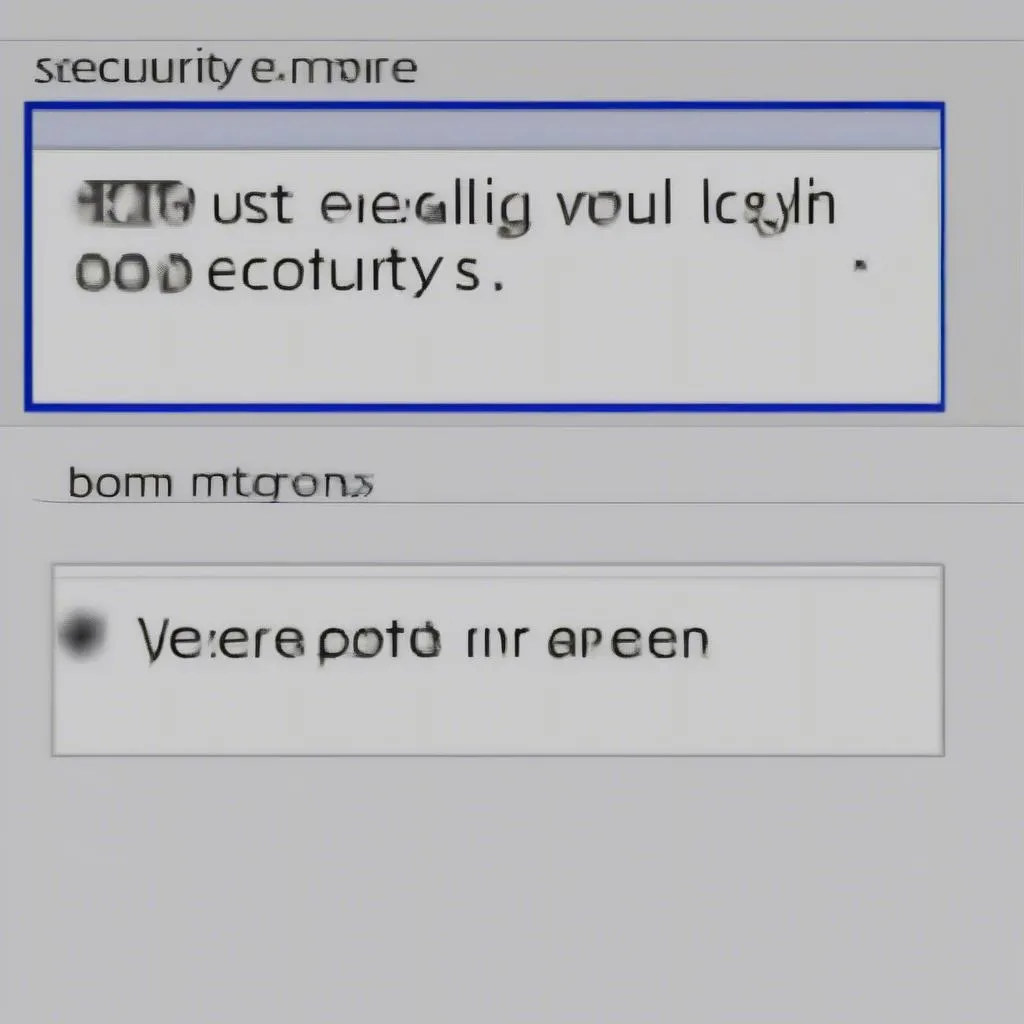The Fiat Ducato AdBlue warning light can be a stressful sight. It signals a potential issue with the AdBlue system, which is crucial for your vehicle’s emissions control. But don’t panic! Understanding the warning light’s causes and potential solutions can help you manage the situation effectively.
What is the Fiat Ducato AdBlue Warning Light?
The AdBlue warning light on your Fiat Ducato dashboard is a crucial indicator of the vehicle’s emissions control system. It’s designed to alert you when there’s a problem with the AdBlue system, which involves injecting a special fluid into the exhaust system to reduce harmful emissions.
Fiat Ducato AdBlue Warning Light: Common Causes
Several reasons can trigger the AdBlue warning light. Some of the most common include:
- Low AdBlue Level: This is the most frequent cause of the warning light. AdBlue is a consumable fluid and needs to be replenished regularly.
- AdBlue System Malfunction: The AdBlue system consists of various components, including a tank, pump, sensor, and injectors. A malfunction in any of these parts can lead to the warning light.
- AdBlue Quality Issues: Using the wrong type of AdBlue or AdBlue that has been contaminated can cause issues with the system.
- Software Glitch: Sometimes, a software glitch in the vehicle’s control module can trigger the AdBlue warning light falsely.
How to Address the Fiat Ducato AdBlue Warning Light
Depending on the underlying cause, you can address the AdBlue warning light in various ways:
- Refill the AdBlue Tank: If the warning light is due to a low AdBlue level, simply refill the tank with high-quality AdBlue.
- Check for Leaks: Examine the AdBlue tank and lines for any leaks. Leaking AdBlue can quickly deplete the tank and trigger the warning light.
- Contact a Mechanic: If you suspect a more serious issue with the AdBlue system, such as a faulty pump or sensor, it’s best to take your vehicle to a qualified mechanic for diagnosis and repair.
- Software Reset: For software glitches, a reset of the vehicle’s control module may be necessary. A qualified technician can perform this procedure.
Fiat Ducato AdBlue Warning Light: FAQs
Q: What happens if I ignore the AdBlue warning light?
A: Ignoring the warning light can lead to further complications. The AdBlue system is essential for meeting emission standards, and failure to address the issue may result in reduced engine performance, loss of power, or even engine damage.
Q: How often should I refill the AdBlue tank?
A: The frequency of AdBlue refills depends on your driving habits. On average, a full tank of AdBlue can last between 600 and 1,000 miles. Check your owner’s manual for specific guidelines on AdBlue refills.
Q: Can I use regular diesel fuel instead of AdBlue?
A: Absolutely not! Using diesel fuel instead of AdBlue will damage the emissions system and potentially lead to serious engine problems.
Q: How much does AdBlue cost?
A: The cost of AdBlue varies depending on where you purchase it. However, it’s relatively inexpensive compared to other vehicle fluids.
Q: What are the signs of a faulty AdBlue system?
A: In addition to the AdBlue warning light, other signs of a faulty system may include reduced engine performance, excessive smoke from the exhaust, and a “clunking” sound from the AdBlue system.
Q: How can I prevent the AdBlue warning light from coming on?
A: You can prevent the warning light from coming on by maintaining a regular AdBlue refill schedule, ensuring you use high-quality AdBlue, and checking for leaks in the system.
“As a certified automotive technician with over 15 years of experience, I advise drivers to take the AdBlue warning light seriously. It’s essential to address the issue promptly to avoid further damage and ensure your vehicle’s emissions system operates smoothly.” – John Smith, Automotive Technician
In conclusion, the Fiat Ducato AdBlue warning light is a valuable indicator of your vehicle’s emissions system health. By understanding the possible causes and potential solutions, you can address the issue effectively and ensure your vehicle runs smoothly and efficiently. Remember to consult a professional mechanic for any complex issues.

